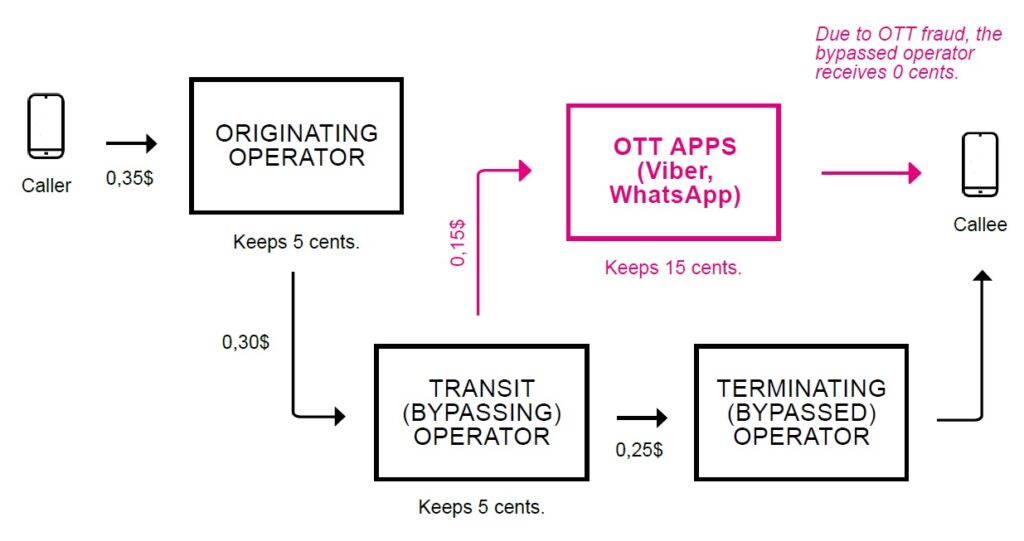How OTT apps became the hooligans of call termination

Smartphone penetration has opened the door to applications making a big difference in user behavior. A desire for continuous and cheaper communication channels has fueled the development of over-the-top (OTT) applications.
OTT applications bring almost nothing but gain to subscribers. They take care of their messaging and communication needs in one place with polished user experience and favorable fremium services. What is not to like?
OTT bypass has cleared a new way to erosion of traditional voice revenues
Most of OTT apps offer integration with classic voice systems, which further compounds their divide. The fact that basic usage of OTT applications is free increases their mass adoption but also offeres app manufacturers free access to large subscriber bases.
While the thirst for easy-to-use and efficient mobile channels is quenched by OTT app expansion, a door for additional revenue leakage at the level of network operators has also been opened.
OTT apps offer services such as voice calls that affect the international voice call termination process. A call that originates as a classic voice call can bypass the terminating operator and reach the user on an OTT app without the caller and the callee even knowing the difference.
The operator who was supposed to terminate the call is sidestepped and stripped of its revenue.
How OTT fraud occurs
Most common OTT fraud activities occur when voice wholesale operators or originated telecoms operators deliberately terminate the international voice minutes through Viber or WhatsApp. Both OTT applications are commonly used by fraudsters to bypass international termination.
Viber, as an OTT company, is terminating such international calls via the app for free on networks globally while collecting all the international interconnect revenue. Viber itself is also a wholesale voice and SMS operator and is interconnected with hundreds of international operators to terminate their own traffic or traffic of other 3rd party operators.
WhatsApp is the most popular OTT app for voice and messaging and is abused by fraudsters to terminate international calls through a system similar to SIM box gateways.
Fraudsters are using such platforms with hundreds of smartphones to terminate international calls originating on fixed or mobile networks and such calls are routed via the wholesale chain and ending up on the OTT gateways used by fraudsters.

Detecting OTT grey routes requires an intelligent hybrid of voice and data fraud prevention
Battling OTT bypass calls that do not originate between two OTT app users requires thorough combat.
It needs to combine voice traffic monitoring with enhanced DPI for data traffic breakdown. This way, operators can differentiate between all forms of data traffic and at the same time separate the traffic for each individual OTT application. After detecting and isolating fraudulent OTT traffic, it is up to the operator to decide further action.
Mobik’s OTT Guard does just that. It detects OTT bypass calls and leaves the operator the decision of how to handle these occurrences. Based on our comprehensive technology in voice and data fraud prevention it takes advantage of our enhanced next-generation DPI capability.
